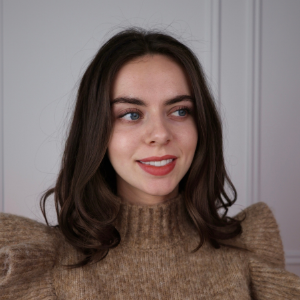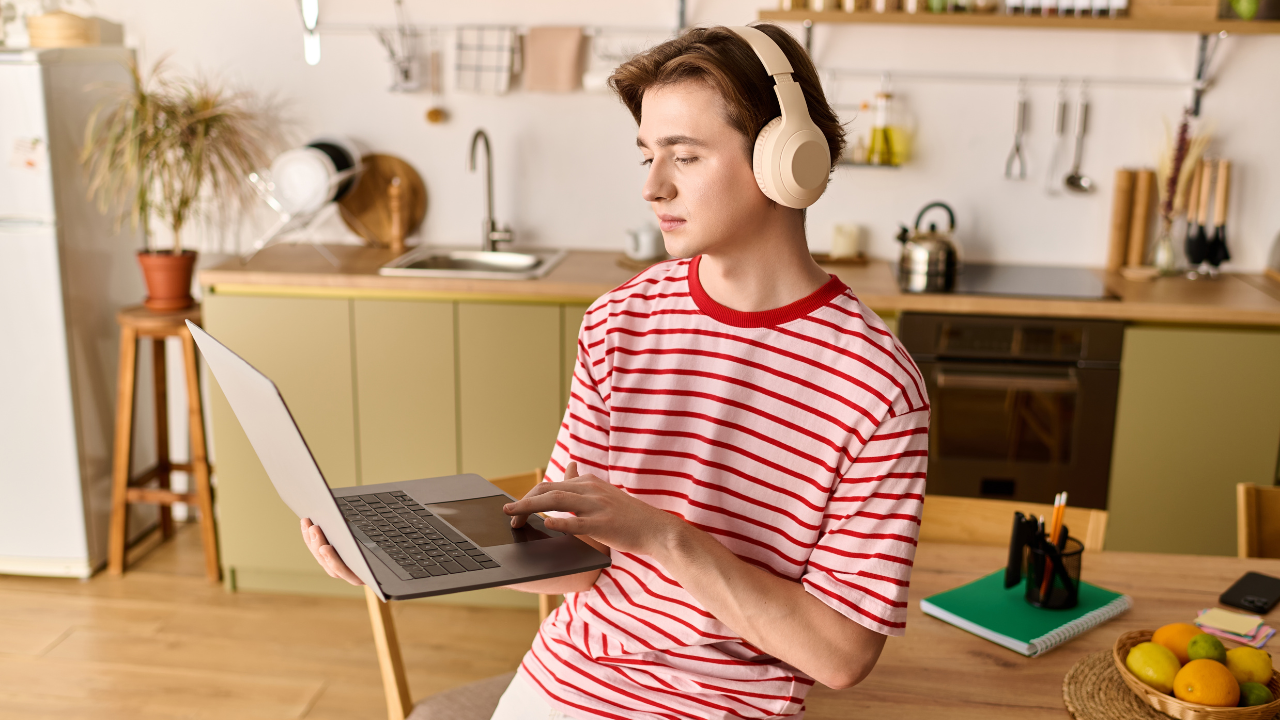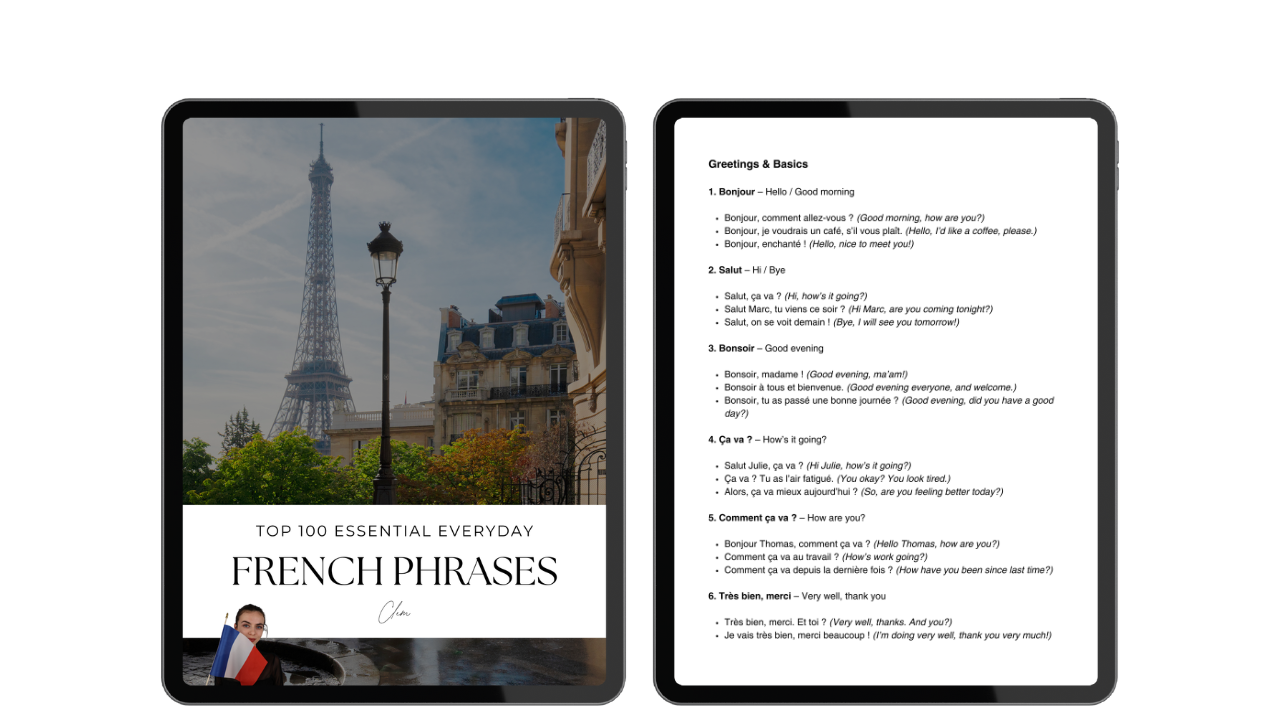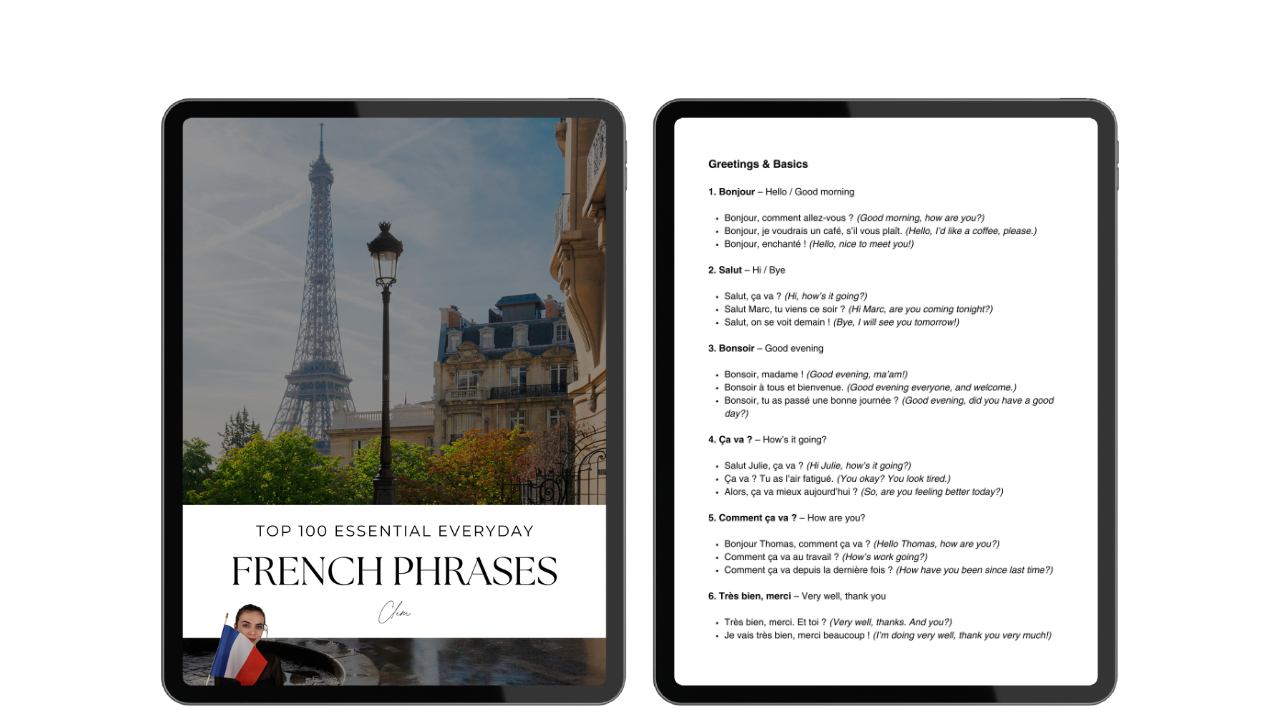
How Learning French Changes the Way You See the World
Sep 07, 2025Learning a new language isn’t just about memorizing vocabulary or finally figuring out where all those sneaky accent marks go. It rewires your brain. It rearranges how you think. And if that language happens to be French, it might just quietly—and permanently—shift the way you see the entire world.
Sounds dramatic? Maybe.
But anyone who’s really dug into French will tell you: it’s more than a skill. It’s a new lens. Suddenly, you start noticing tiny cultural details, thinking in slightly different ways, and even understanding yourself differently.
Here’s how learning French can transform not just how you communicate—but how you live.
1. You Start Paying Attention to the Small Things
French is a language of details.
Suddenly, you’re paying attention to little things you never noticed before:
-
Wait—table is feminine? Le table? No… la table.
-
Why is amour masculine but becomes feminine in the plural? (Yes, really.)
-
And why do some adjectives go before nouns while others go after?
You might grumble about the gender of a chair (why is a chair feminine?), but here’s the side effect: you start noticing everything.
When you speak English, you don’t think about objects much—they’re just “things.” In French, you’re suddenly aware of their “identity”: masculine or feminine, singular or plural, this adjective or that.
👉 The shift: Your brain starts categorizing the world more precisely. The baguette isn’t just “bread.” It’s la baguette—a specific “she” of a bread.
2. You Realize There Are More Ways to Say Things
In English, you “miss someone.” In French, you say:
👉 “Tu me manques.”
Which literally translates to: “You are missing from me.”
At first, it feels like your brain is doing gymnastics. But then—click—it makes sense.
And you realize: the way you say something shapes how you feel it.
-
“I miss you” feels wistful, passive.
-
“You are missing from me” feels deeper, almost like a piece of you is gone.
Learning French shows you that languages aren’t just “different words for the same idea.” They’re different ways of seeing the idea altogether.
3. You Stop Assuming “Normal” Is Universal
Your first trip to France might bring little shocks:
-
People greet you with kisses on the cheek.
-
Lunch lasts two hours.
-
The baker closes for vacation—for the whole month of August.
At first, you might think: That’s weird.
Then, as you learn the language—and the culture woven into it—you stop saying “weird.” You start saying “different.”
You understand why tu and vous matter (formal vs. informal “you”). You get that saying “bonjour” when you enter a shop isn’t just nice—it’s expected.
👉 The shift: You stop assuming your version of “normal” is the default.
The world suddenly feels much bigger—and more interesting.
4. You Fall in Love with “Untranslatable” Words
English is great, but it doesn’t have a word for dépaysement—that disorienting, exciting feeling of being somewhere completely new.
It doesn’t have a neat equivalent for terroir—the mix of soil, climate, and tradition that gives French wine its soul.
When you learn French, these words start living in your head. And soon, they start filling little gaps you didn’t know were there.
👉 You feel dépaysement on a road trip.
👉 You think about terroir while drinking coffee, not just wine.
Your vocabulary expands—but so does your imagination.
5. You Hear Music in Everyday Speech
English is stress‑based—we punch certain syllables hard.
French? French is smooth. The syllables flow like water. Words link. Consonants sneak into the next word:
👉 Vous avez becomes “voo‑zavez.”
👉 Il y a becomes “y’a.”
The first time you hear it, it’s a blur. The tenth time, you start hearing the music.
And the more you speak, the more you adjust your ear—not just to French, but to rhythm and melody in all languages.
Suddenly, you’re paying attention to tone. To pauses. To the way people sound, not just what they say.
6. Your Brain Gets More Flexible
Science backs this up: learning a language builds cognitive flexibility.
But it feels different when you live it.
You stop thinking there’s only one way to describe time, politeness, or even the future. You juggle two ways of seeing the same idea.
👉 In English: “I’m going to eat.”
👉 In French: “Je vais manger” and “Je mangerai” (two subtly different futures).
Your brain learns to switch tracks—to hold two ideas at once. And weirdly enough, it spills over: you get better at problem‑solving, multitasking, and even tolerating ambiguity.
7. You Start Thinking… in French (and It Feels Weirdly Amazing)
At first, you translate everything in your head.
Someone says: Tu as faim ?
Your brain: “Do you have hunger?” → “Are you hungry?” → “Yes.”
It’s clunky. Slow.
Then, one day, you hear: Tu as faim ?
And your brain just… gets it. No English middleman.
The first time it happens, it’s magic.
👉 That’s the moment you realize: you don’t just “know” French words. You’re starting to think in French.
And the more it happens, the more you live in two worlds at once.
8. You Notice How Culture Lives in the Language
French isn’t just “English with different words.”
It carries cultural DNA.
-
The politeness built into “vous.”
-
The casual elegance of “voilà”—a word for this is it, there you go, look.
-
The way every meal seems to end with “Bon appétit!”—not as a joke, but as a genuine wish.
You start seeing how the French way of living—slow lunches, long vacations, daily bread runs—sneaks into the language itself.
👉 And when you speak it, you’re not just learning words—you’re slipping into another culture’s rhythm.
9. Your Confidence Grows in Strange, Unexpected Ways
The first time you order coffee in French and the barista understands you? Tiny victory.
The first time you make someone laugh—in French? Huge victory.
Each little success chips away at self‑doubt.
You start thinking: If I can do this—stumble through verb conjugations, survive awkward silences, learn from my mistakes—what else can I do?
👉 And you realize: language learning isn’t just about French. It’s about teaching yourself you can learn anything.
10. You See Your Language Differently, Too
Here’s the surprise twist: learning French changes how you see English.
You start noticing things you never thought about:
-
Why do we say on the bus but in the car?
-
Why does English borrow so many French words (restaurant, ballet, déjà vu)?
-
Why don’t we have gender for objects—and how does that shape the way we think?
You start asking questions about your own language you never asked before. And you might even start loving English a little more—because you see how weird and wonderful it really is.
11. You Make Friends You Never Would Have Met
This might be the best part.
When you learn French, you connect—with teachers, classmates, strangers in France, other learners online.
-
You chat with the cheese seller at a market.
-
You swap messages with someone from Lyon on an app.
-
You bond with another learner about how le and la make you both crazy.
👉 And those connections open up a world that didn’t exist before.
Friendships. Travel. Maybe even love.
All because you decided to tackle those verb conjugations.
12. You Discover a Different Pace of Life
French has words that slow you down:
-
Flâner – to stroll, to wander without rushing.
-
Prendre l’apéro – the sacred pre‑dinner drink and snack.
As you learn these words, you start noticing the concepts they carry.
👉 You might start flâner‑ing through your own neighborhood.
👉 You might start “taking the apéro” at home—not just “grabbing a drink,” but savoring it.
Language starts to change not just how you think—but how you spend your time.
13. You Become More Curious (About Everything)
Once you’ve cracked open one language, you start seeing cracks in others.
You hear Spanish on the bus and wonder: What’s that word?
You spot Italian on a sign and think: That looks like French—does it mean the same thing?
French turns you into a linguistic detective. You can’t help it.
👉 And soon, the world isn’t just “noise”—it’s a puzzle you actually want to solve.
14. You Start Saying “Voilà” Without Thinking
It sneaks up on you.
One day, you set down a plate and say, “Voilà!”
You shrug and mutter, “Bah…” instead of “um…”
You drop an effortless “bon courage” into a text.
Little by little, French expressions slip into your English life—and you kind of love it.
15. You Realize Language Is Alive
Before learning French, “grammar” might sound dry—rules in a dusty book.
But when you speak, stumble, laugh, and listen, you see language living:
-
You watch a teenager in Paris invent slang.
-
You see a baker use an old expression your textbook never mentioned.
-
You notice how French evolves—just like English does.
And you start treating language less like “something to study” and more like something to experience.
The Bottom Line
When you start learning French, you think you’re just adding a skill.
What you’re really doing?
-
Training your brain to think differently.
-
Seeing culture in every word.
-
Finding beauty in little victories.
-
Realizing there’s more than one way to live, speak, laugh, and see the world.
French doesn’t just give you new words.
It gives you new eyes.
So if you’re somewhere in the middle of learning—still wrestling with the subjonctif, still mixing up le and la—keep going.
Because one day, you’ll look around, smile, and think—in French, without even realizing it—
👉 “Voilà. I see the world differently now.”

